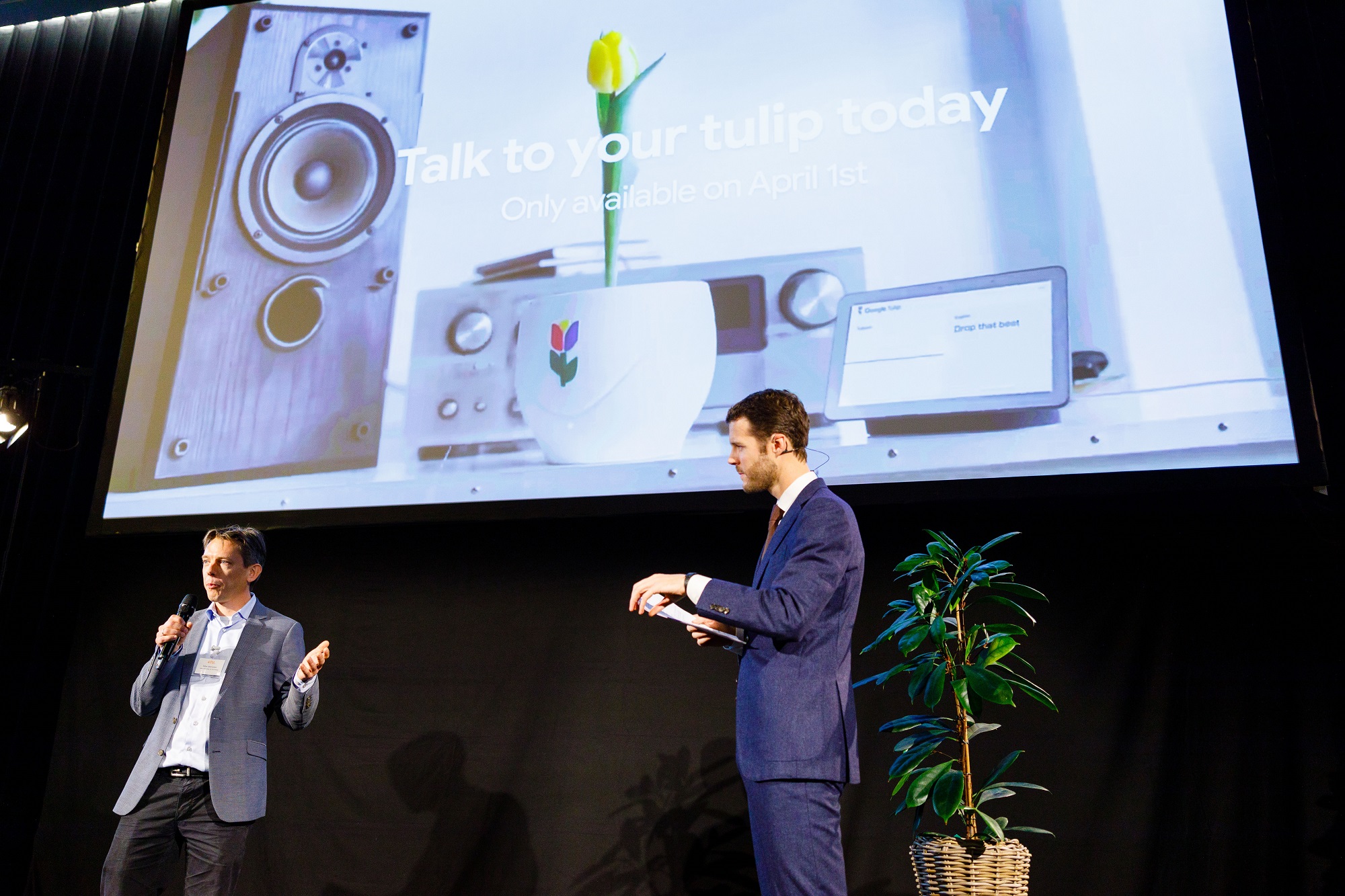Presentatie programma’s Soft Robotics en Botanic Sensor networks bij 4TU event
Foto: 4TU.Federatie/Bram Saeys
De vijf nieuwe onderzoeksprogramma’s die 22 miljoen euro toegekend krijgen door de 4TU.federatie presenteerden zich deze week tijdens het 4TU kick-off event. Het overkoepelende thema was ‘high tech for a sustainable future’. Binnen de programma’s werken de universiteiten van Delft, Eindhoven, Twente en Wageningen samen. Door kennis te bundelen, zetten ze in op vernieuwing binnen het onderzoek. Met het aanstellen van 44 tenuretrackers investeert 4TU in onderzoek voor de lange termijn. Het gaat om vaste posities binnen de universiteiten. Doel is dat de onderzoekers binnen de thema’s eigen onderzoeksprojecten opzetten, financiering binnenhalen en aio’s aannemen.TU Delft is penvoerder van de twee programma’s ‘Soft Robotics’ en ’Plantenna’.
Het programma ‘Plantenna’ wordt gecoordineerd door Peter Steeneken, professor Dynamics of Micro and Nanosytems bij de afdeling Precision and Microsystems Engineering. Het programma ‘Soft Robotics’ wordt gecoordineerd door Herman van der Kooij, deeltijdprofessor bij de afdeling BioMechanical Engineerig in samenwerking met David Abbink en Michael Wiertlewski van het Delft Haptics Lab en Paul Breedveld en Aimee Sakes van de BITE Group.
Plantenna - Botanic sensor networks, towards an internet of plants
Researchers are focused on the development of sensor technology which gathers information from within plants concerning the state of the crop and the surrounding environment. By connecting sensored plants in networks , an ‘internet of plants’, scientists can use the data gathered for climate and weather monitoring, and for higher crop yields by employing more efficient fertilisation and irrigation.
Soft Robotics
Robots that operate in society require a ‘soft touch’. Industrial robots are exceptionally precise and fast, but also rigid. They are less suitable when it comes to physical and safe contact with people or collecting certain foodstuffs, for example. This research is inspired by nature, such as the tree frog’s soft grip or the squid’s flexible arms. The form, flexible movements and softness are the guiding principles for soft robotics. An elephant is capable of picking up an apple with its trunk without crushing it. This programme unites organic knowledge, new regulation technology and innovative robotics design.
Lees meer hier
Artikel in Delta: ‘TU’s werken samen in nieuwe onderzoeksprogramma’s’
